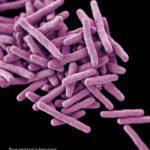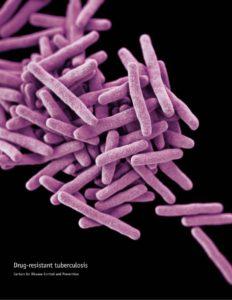Tuberculosis is one of the most dangerous infectious diseases with high morbidity and mortality especially in southern Africa. In this region, TB-HIV co-infection is a a leading cause of death. Researchers have now shown that Qa-1, a murine homolog of HLA-E, is able to present Mycobacterium tuberculosis (Mtb) antigens to CD8 T cells and this process helps in the prevention TB infection.
Protection from Mtb has been shown to depend on T cell responses. CD4 T cells produce cytokines such as IFN-γ and Il-12 while CD8 T cells also produce similar cytokines including IFN-γ and TNF-α. Together, these immune responses help in the prevention of TB infection. Non-conventional CD8 T cells which are MHC Ib-restricted have been shown to play a role in anti-Mtb protection, particlularly MHC 1b molecules such as HLA-E (or in the mouse, Qa-1).
Both HLA-E and Qa-1 are able to present antigens from intracellular pathogens to CD8 T cells and this results in the induction of cytotoxic responses against the infected cells. HLA-E and Qa-1 can also present self antigens and are able to interact with various receptors on cells. They also have been shown to have a regulatory role on the immune system where they have been shown to suppress immune responses.
The researchers, from the Feinberg School of Medicine, Northwestern University, USA, investigated the effect of HLA-E/Qa-1 on Mtb infection. To do this, they used mouse TB models in a controlled environment.
The authors found that Qa-1 was able to present Mtb peptides to CD8 T cells after Mtb infection through aerosol methods. Mice that were deficient in Qa-1 were more susceptible to Mtb infection, having higher viral loads and higher mortality rates. T cells in Qa-1-deficient mice produced more pro-inflammatory cytokines which resulted in a worse prognosis as they were unable to control the bacteria.
This study reveals the role of Qa-1 in immunity towards Mtb and suggests that HLA-E in humans plays the same role. Using information from this study, an effective protective vaccine against TB could be developed.
Article by Thandeka Moyo

